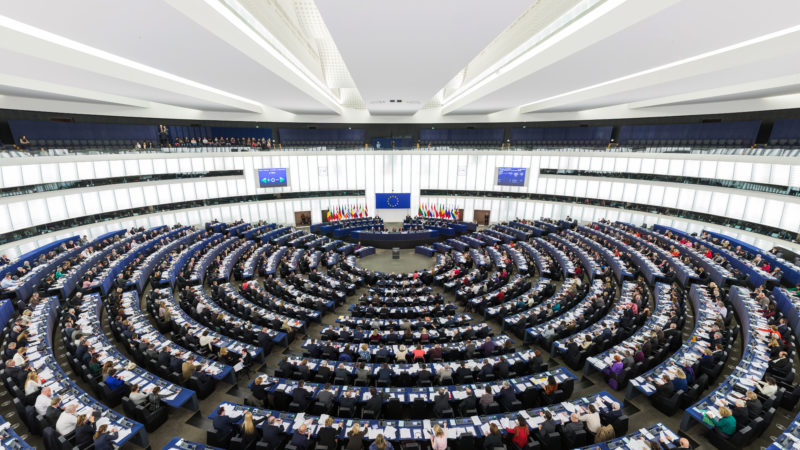
Britain is begrudgingly taking part in European elections later this month. Given that if everything had gone to plan we would have left the EU nearly two months ago, it is no surprise that neither Labour nor the Conservatives have properly prepared for them. Labour’s candidates were hastily selected and a draft leaflet that made the rounds on social media caused a stir over its failure to commit the party to a confirmatory referendum on any Brexit deal.
Following uproar from activists and MEP candidates, the party reconsidered the Brexit pledge wording on the leaflet and the confirmatory referendum policy was added. But this row misses the point – that was far from the worst shortcoming of our literature. In addition to Brexit, the leaflet highlights three pledges: to invest in local services, to set up regional development banks and to create more affordable homes. There is nothing wrong with these pledges in themselves. But none have much to do with the upcoming elections.
Frustratingly, it is clear that Labour views the European elections as a dry-run for a general election rather than as an opportunity to engage with European-wide political challenges while promoting socialist policies. This reveals an inward-looking and isolationist attitude. Even if Labour MEPs end up being part of the next European parliament for only a short time, a strong electoral showing for Labour in the UK could have a big impact on the whole of Europe. Labour MEPs could shift the balance of power in favour of the Progressive Alliance of Socialists and Democrats (S&D), the group in which Labour and our sister parties are organised.
This is significant: the biggest group in the European parliament will choose the President of the European Commission. At present, the conservative European People’s Party (EPP) is the biggest group, having chosen their Spitzenkandidat Jean-Claude Juncker to head the Commission after the last elections.
A win for the S&D and a social democrat at the helm of the Commission, alongside recent signs of recovery for some Social Democratic parties across the continent, could be a glimmer of hope for downtrodden European left-wingers who want to see a change of direction.
It would also prevent Manfred Weber – a politician of Angela Merkel’s Christian Democrats who has spoken favourably about Viktor Orbán in the past – from taking the Commission’s top job. Weber and the EPP have a programme of fiscal discipline and a hard line on migration.
At the start of its European manifesto, the EPP argues that the EU needs to better protect its citizens from uncontrolled immigration. It claims that the Schengen Area of borderless travel can only function if Europe’s outer borders are strong, which is why it pledges to increase officer numbers for the European Border and Coast Guards. The EPP also wants to use new technology, including drones, for border surveillance and a ‘direct right of intervention’ to stop migration.
In place of support for migrants and refugees in distress at sea, we have seen national rescue missions stripped back, which has forced civil society to take up the moral duty of helping those who have made the dangerous Mediterranean sea crossing. Now, instead of rescuing fellow humans from drowning, some countries such as Italy have started prosecuting civil fleet volunteers on trumped up ‘people smuggling’ offences.
European immigration policy has become an inflammatory issue among the left. Lexiteers reject freedom of movement in the EU precisely due to Europe’s draconian policies towards refugees and those from the Global South. Putting forward a strong pro-migration and refugee rights case in these elections would challenge Fortress Europe in a way that simply leaving the EU cannot.
Labour is talking about austerity during this campaign, but only in terms of demanding more bobbies on the beat (presumably because that works well in focus groups). These elections should be seen as a chance to create a sense of solidarity between Northern and Southern European countries. We must oppose the ability of EU power players to force austerity elsewhere.
There has to be a bold, continent-wide programme of investment, a drive for wage growth and a shift in power to workers through trade unions. Of course this cannot be achieved simply by improving left party results for European parliament elections or winning the Commission president – but such successes could kick off a conversation that puts serious pressure on Europe’s elites.
We often talk about how the Corbyn project can inspire other European left parties to push for radical socialist policies in their nations. Now is the time to show some courage and lead proudly by example. Labour must use the European parliament elections to do just that.




More from LabourList
Nudification apps facilitate digital sexual assault – and they should be banned
Diane Abbott suspended from Labour after defending racism comments
Labour campaign groups join forces to call for reinstatement of MPs